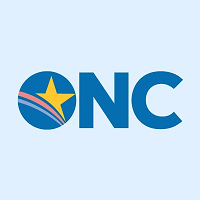 By Ryan Argentieri, Samantha Meklir, and Jawanna Henry, ONC
By Ryan Argentieri, Samantha Meklir, and Jawanna Henry, ONC
Twitter: @ONC_HealthIT
ONC is working alongside Health Level Seven International (HL7®) and with a wide range of partners from health care, government (federal and states), community-based organizations, developers, providers, and industry stakeholders to launch a national Gravity Project Pilots Affinity Group. This new group will pilot the SDOH Clinical Care FHIR Implementation Guide (SDOH CC IG) as a way to further the development and adoption of social determinants of health (SDOH) standards. Additionally, ONC is supporting the publication of the latest version of the SDOH CC IG currently in ballot and providing funding for sites to pilot the SDOH CC IG.
Our combined efforts are expected to demonstrate how best to advance our nation’s technical infrastructure to enable SDOH interoperability as supported by ONC’s United States Core Data for Interoperability (USCDI) Version 2. The USCDI standard consists of a core set of data classes and elements for nationwide, interoperable health information exchange and includes data elements captured in clinical and health settings to help identify and to address conditions that put a person’s health and well-being at risk. The ability to use and build from established standards in real-time and as part of screening practices that help identify specific needs related to food, housing, and transportation insecurity is an important step in enabling more coordinated care and timely assistance or interventions needed to improve health outcomes.
Collectively, these affinity group and implementation guide activities are expected to help improve the access, exchange, and use of SDOH standards by:
- Accelerating the shift to industry preferred Fast Healthcare Interoperability Resources (FHIR®) API standards-based exchange of data elements that support SDOH on a national scale;
- Gaining real-world experience by piloting the SDOH Clinical Care FHIR Implementation Guide; and
- Providing direct support to community-based organizations to participate in the pilot alongside clinical partners.
Health inequities, driven in large part by root causes such as poverty and racism, can be improved in part through the secure collection, documentation, reporting, access and use of data across provider types. Eligible pilot participants will use the various FHIR resources that have already been made available but are not limited to the SDOH data elements in the USCDI (SDOH Assessment, SDOH Problems/Health Concerns, SDOH Goals and SDOH Interventions). The new Pilots Affinity Group is an opportunity open to all stakeholders interested in utilizing the above as well as the soon to be balloted Implementation Guide to deliver more equitable care.
ONC helped fund this work through a cooperative agreement with HL7 in support of HHS’s Strategic Approach to Addressing Social Determinants of Health to Advance Health Equity, a three-pronged strategy to support robust and interconnected data infrastructure, improve access to health and social services, and adopt a whole of government approach for enhancing population health and well-being. This work also helps provide a foundation from which groups, such as the recently announced Sync for Social Needs Initiative, can be most impactful.
Visit the Pilots Affinity Group site for more information on how to engage with us or to join the monthly meetings, which you can do as an observer or pilot participant. Questions or input about this program and ONC’s work to advance health equity by design can be sent via our Health IT feedback form. We welcome your continued input and encourage you to share your experiences.
This article was originally published on the Health IT Buzz and is syndicated here with permission.
